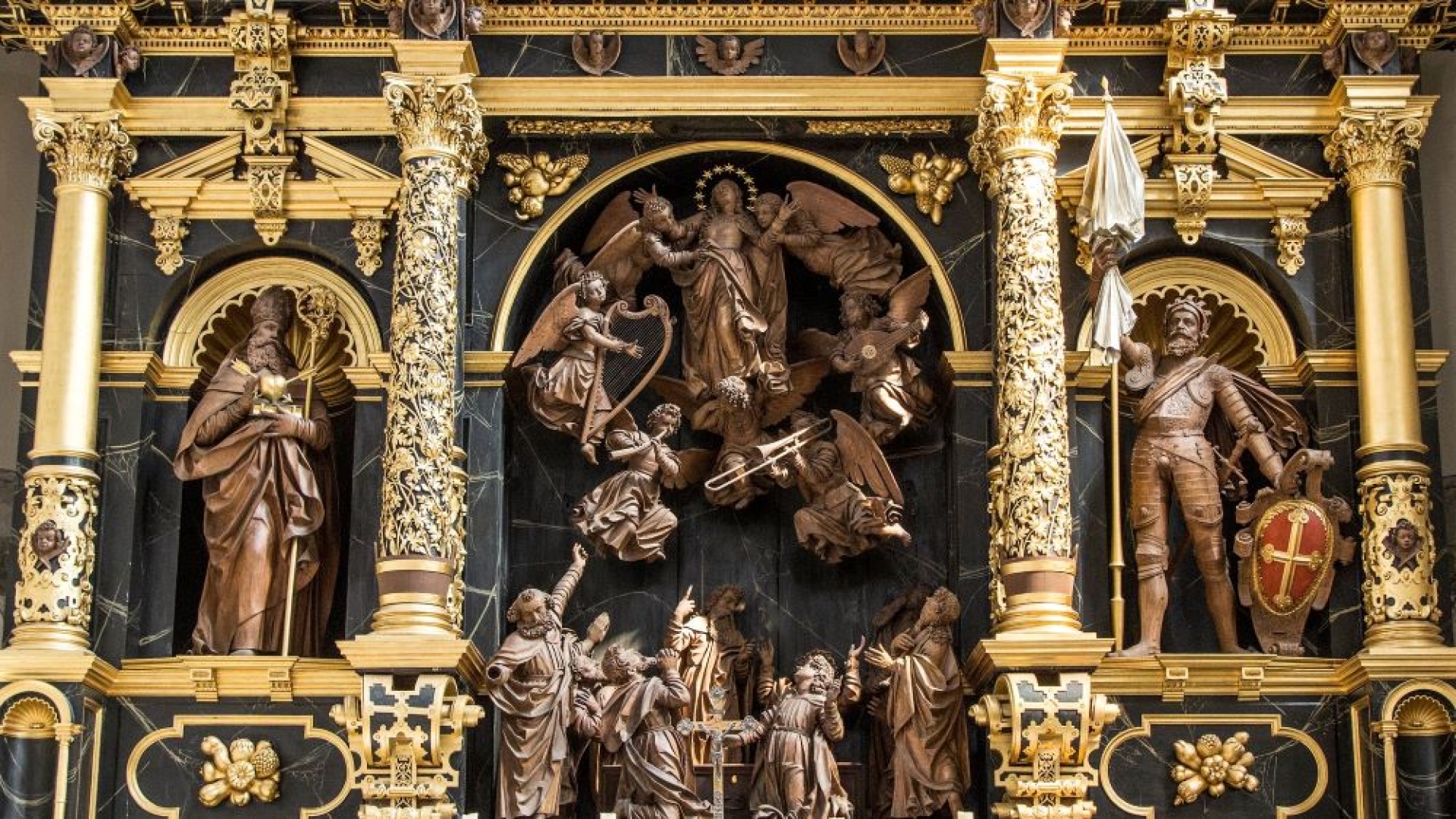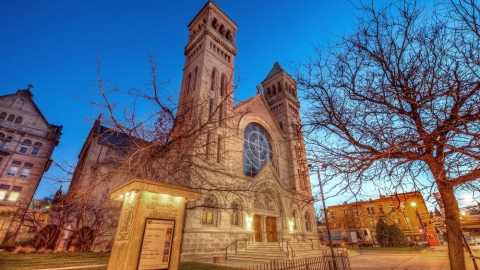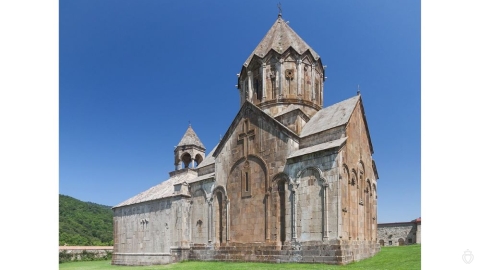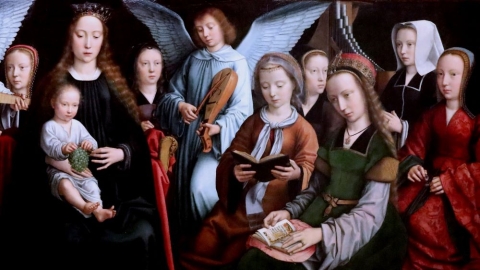The Assumption of the Mother of God

The term “assumption” means: to be raised to heaven, by a power that does not primarily belong to the Virgin. Even so, this power belongs to her by virtue of the quality of glorified bodies. It is therefore a movement whose point of departure is the presence of the body on earth, and whose end is the presence of the body united with the soul in heaven.
The question which covers the term of the dormition of the Virgin Mary – death, or simply sleep – will not be examined here. Two opinions are admitted, and the Magisterium has not decided this point.
Tradition is beautifully summed up by Pope Pius XII in the bull that defines the dogma.
The testimony of the Fathers of the Church
St. Gregory of Tours: “And behold, again the Lord stood by them; and, the holy body [of the Virgin] having been received, He commanded that it be taken in a cloud into paradise: where now, rejoined to the soul, Mary rejoices with the Lord’s chosen ones, and is the enjoyment of the good of an eternity that will never end.”
Modestus of Jerusalem: “Christ resurrected her from the dead, and raised her next to Him, in a place known to him alone.”
St. John Damascene also testified to the Assumption of the Virgin.
The Magisterium
Pope Pius XII declared in the Apostolic Constitution Munificentissimus Deus: “we pronounce, declare, and define it to be a divinely revealed dogma: that the Immaculate Mother of God, the ever Virgin Mary, having completed the course of her earthly life, was assumed body and soul into heavenly glory.” Dz. 2333. It is neither a question of the fact of the death, nor of the circumstances.
It is de fide that the Virgin, at the end of her earthly life, was assumed into heaven body and soul.
The Fathers and theologians show the high propriety of this mystery
The dignity of the Mother of God is the foundation of all the Virgin’s privileges; it also explains the Assumption.
The fullness of grace and the immaculate conception explain that the Mother of God was exempted from the corruption of the tomb: exempted from the curse of Eve.
This singular participation in the Redemption requires a singular participation in the fruits of the Redemption. The Immaculate’s victory over sin must be complete. Now death is the price of sin. Thus, if the Virgin, with Christ, won a complete victory over sin, this victory must include the triumph over death: at the very least, the anticipated resurrection.
The filial piety of Jesus also calls for a favor of this nature, just as it calls for a special apparition of the Risen Jesus to Mary to whom He appeared on Easter night.
If Our Lady were not really living in heaven, Jesus could not really be called the Son of Mary, since His Mother is no longer, death having dissolved the nature and the person as human. It is a human person who is the end of the temporal filiation of Jesus.
Pius XII, in considering the definition of the dogma, used the principle of the granting of privileges: it is necessary to assume the most perfect in the Holy Virgin. Thus, the Assumption of the Blessed Virgin Mary into heaven crowns her privileges of singular purity.
Conceived without sin and in a state of grace, conceiving the Son of God virginally, and living exempt from the degradation of the tomb, the Virgin has thus eluded all occasions of corruption, culpable or not, which have been hitting the human race since original sin.
Related links
Illustration : Flickr / Fr Lawrence Lew O.P. (CC BY-NC-ND 2.0)





